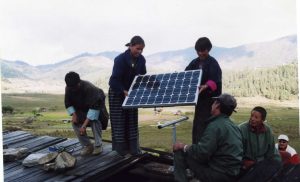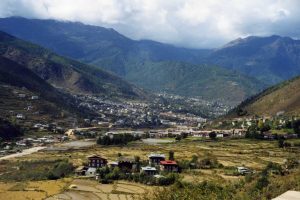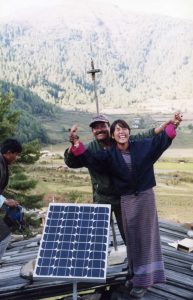Protecting the Habitat of the Endangered Black Neck Cranes
In 2003, SELF developed a project to advance the goals of improved living conditions and environmental conservation. By working with local partners, Tshungmed Solar and SELCO-India, the project brought solar power to 151 Phobjika homes, the community health clinic, and education center of the Royal Society for the Protection of Nature.




Deep in the Himalays, Bhutan is an environmental and cultural paradise. The Phobjikha Valley of Bhutan is a critical habitat for the Black-Necked Crane. While the 500 families within the valley are faithful protectors of the cranes’ natural habitat, they have longed for an improved quality of life that could be supplied through access to electricity. At the time, the extension of a national power grid into the valley would have created environmental hazards for the cranes. Yet, in absence of electricity, residents of the valley needed to cut down trees and brush for fuel, which is also detrimental to the crane’s natural habitat. The burning of wood chips, kerosene lamps, and candles are all hazardous to human health as well, which affected the lung health and eyesight of the local people.
The implementation of this project in the Phobjikha Valley was a small but vital component of a larger strategy of conservation development in Bhutan, and this project serves as a model for electrification of other villages, both in Bhutan and elsewhere.
This project was made possible by the support of the V. Kann Rasmussen Foundation, the International Foundation, the Summit Foundation, Geographic Expeditions, Darr Williams, Colin and Anne Phillips, Elaine Seiler, and numerous other individual donors.

SELF is a global leader in the fight against energy poverty. Since 1990, we’ve pioneered unique applications for solar energy, powering progress on food security, health care, education, gender equity, and more.
501(c)(3) non-profit organization
EIN: 52-1701564